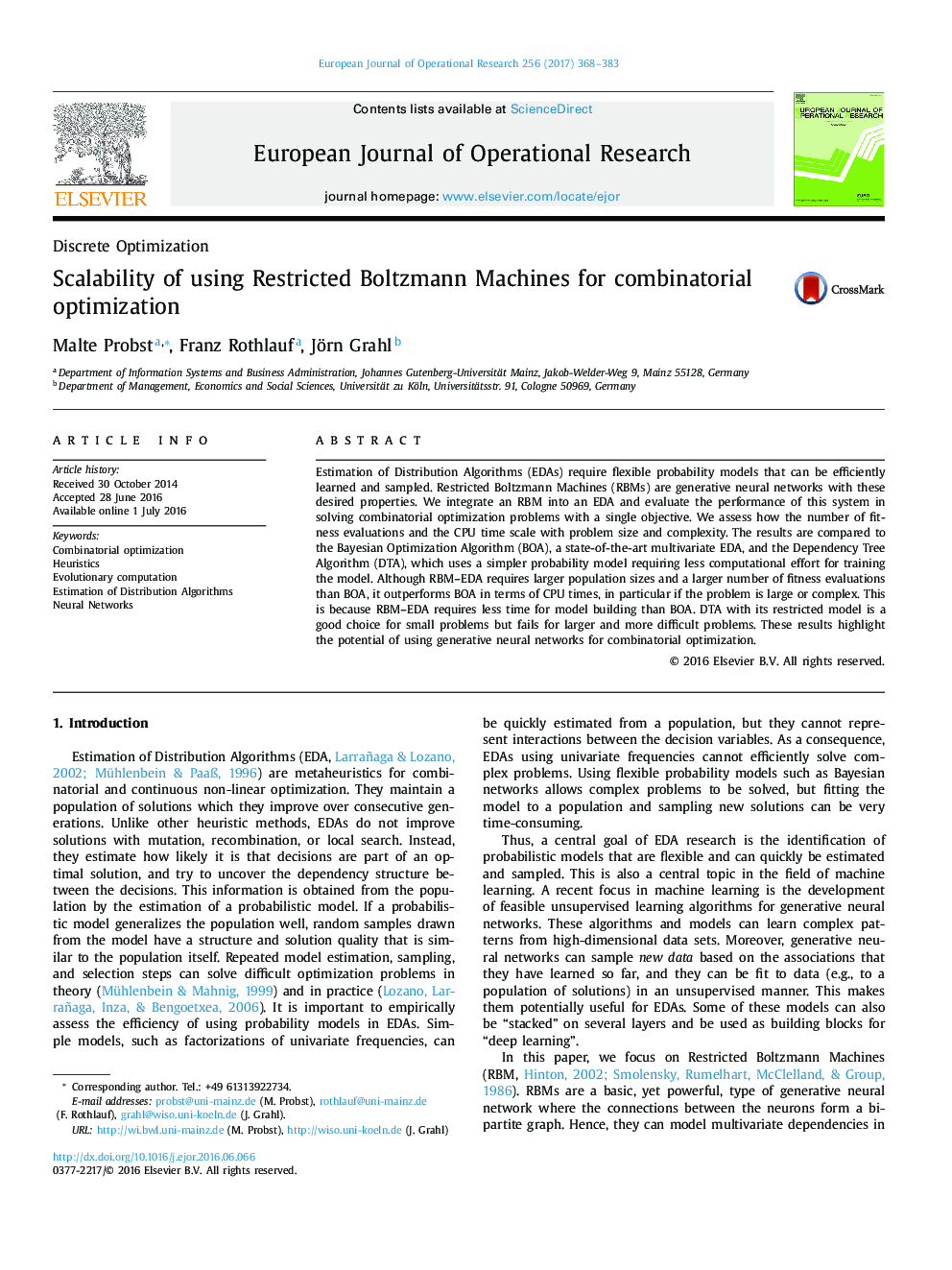| Article ID | Journal | Published Year | Pages | File Type |
|---|---|---|---|---|
| 4960213 | European Journal of Operational Research | 2017 | 16 Pages |
Abstract
Estimation of Distribution Algorithms (EDAs) require flexible probability models that can be efficiently learned and sampled. Restricted Boltzmann Machines (RBMs) are generative neural networks with these desired properties. We integrate an RBM into an EDA and evaluate the performance of this system in solving combinatorial optimization problems with a single objective. We assess how the number of fitness evaluations and the CPU time scale with problem size and complexity. The results are compared to the Bayesian Optimization Algorithm (BOA), a state-of-the-art multivariate EDA, and the Dependency Tree Algorithm (DTA), which uses a simpler probability model requiring less computational effort for training the model. Although RBM-EDA requires larger population sizes and a larger number of fitness evaluations than BOA, it outperforms BOA in terms of CPU times, in particular if the problem is large or complex. This is because RBM-EDA requires less time for model building than BOA. DTA with its restricted model is a good choice for small problems but fails for larger and more difficult problems. These results highlight the potential of using generative neural networks for combinatorial optimization.
Keywords
Related Topics
Physical Sciences and Engineering
Computer Science
Computer Science (General)
Authors
Malte Probst, Franz Rothlauf, Jörn Grahl,
